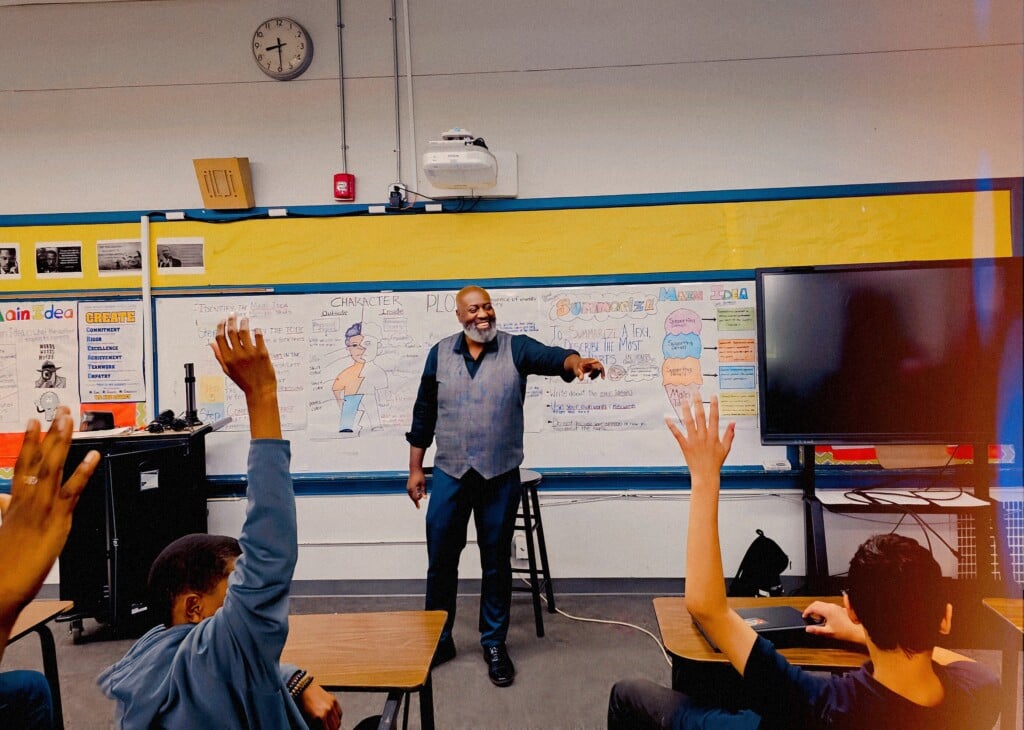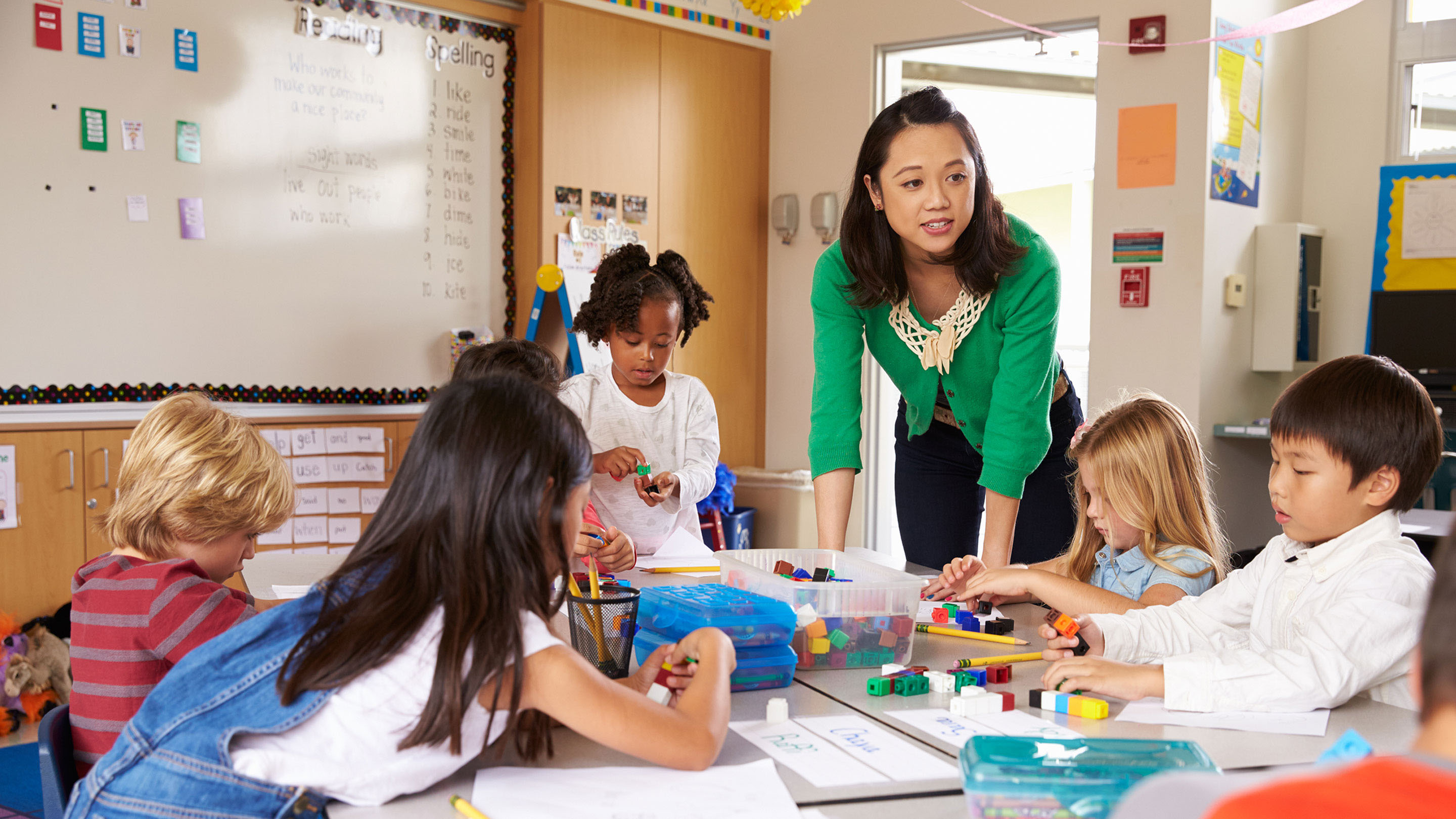Achieve Academic Success with Primary Science Tuition Singapore
Achieve Academic Success with Primary Science Tuition Singapore
Blog Article
Discover the Essential Advantages of Recognizing Primary Scientific Research for Young Students
The relevance of key science education and learning for young learners extends far beyond simple understanding acquisition; it functions as a fundamental column in creating important skills such as crucial thinking, problem-solving, and imagination. Involving with scientific principles through inquiry-based and interactive tasks not only cultivates interest yet also lays the groundwork for durable, certain learners. As we explore these benefits additionally, it comes to be clear that the implications for future academic and individual growth are extensive. Nonetheless, what certain techniques can instructors employ to maximize these advantages?
Enhancing Crucial Thinking Abilities
Cultivating vital thinking abilities in young students is vital for their cognitive development and future scholastic success. Important reasoning allows children to analyze details, assess evidence, and make informed choices, which are essential abilities in today's information-rich culture. By involving in clinical query, young students can enhance these abilities as they discover principles via thinking, monitoring, and testing.
In primary scientific research education, educators can facilitate essential reasoning by urging trainees to ask questions, create hypotheses, and perform experiments. This hands-on technique allows kids to practice analytical and create rational thinking skills. As an example, when students check out the residential or commercial properties of materials or the concepts of activity, they find out to evaluate their findings critically and attract conclusions based on evidence.
In addition, discussions and joint jobs can advertise vital reasoning by providing possibilities for learners to express their thoughts, challenge presumptions, and consider diverse viewpoints. By producing a supportive setting that values inquiry and reflection, teachers can support crucial believing skills that equip young learners to become lifelong learners and independent thinkers. Inevitably, boosting these abilities lays a robust foundation for their future scholastic undertakings and personal growth.
Fostering Curiosity and Expedition

Primary scientific research education supplies an organized atmosphere where young learners can explore different sensations through hands-on experiments and monitorings. By allowing them to engage with products and participate in inquiry-based learning, teachers develop chances for youngsters to develop theories, test their concepts, and reason. Such experiences nurture a feeling of wonder and exhilaration regarding science.

Structure Self-confidence in Problem Resolving
Building self-confidence in analytic is an important part of key scientific research education and learning that empowers young learners to approach difficulties with durability and creativity - primary science tuition Singapore. When children are urged to involve with scientific concepts via hands-on tasks and inquiry-based discovering, they establish vital skills in critical thinking and evaluation. This procedure not just enhances their understanding of clinical concepts yet additionally cultivates a sense of possession over their understanding
To develop confidence, educators ought to produce an encouraging atmosphere where mistakes are deemed opportunities for development as opposed to failings. This encourages pupils to take risks and discover different remedies to linked here problems. By giving scaffolding and assistance, teachers can assist students navigate complex jobs, progressively enhancing their freedom in analytical scenarios.
Additionally, collective understanding experiences, such as team tasks or experiments, can further improve trainees' self-confidence as they learn to articulate their thoughts and listen to others' perspectives. These communications support social skills and reinforce the idea that analytic is frequently a cumulative venture. Ultimately, cultivating confidence in problem-solving prepares young learners for future academic challenges and equips them with the tools necessary for lifelong knowing.
Motivating Creative Thinking and Innovation
In the world of main scientific research education, motivating creative thinking and development is necessary for cultivating a vibrant discovering atmosphere. By cultivating a culture where young learners can check out ideas and experiment openly, teachers help trainees develop important believing abilities and an enthusiasm for exploration. Imagination in scientific research motivates children to ask concerns, develop theories, and engage in hands-on tasks that stimulate their creative imagination.
Integrating flexible projects and inquiry-based understanding into the educational program enables pupils to express their one-of-a-kind point of views and solutions. When entrusted with solving a trouble associated to their setting, students can conceptualize several approaches, leading to innovative outcomes that showcase their creativity. This not just strengthens their understanding of clinical principles but likewise infuses a feeling of possession over their knowing procedure.
Additionally, imaginative scientific research education see this here nurtures cooperation among peers, as students often share ideas and construct on one an additional's understandings - primary science tuition Singapore. This collaborative spirit advertises not only innovation but likewise necessary social abilities. Thus, by prioritizing imagination and advancement in key scientific research education and learning, we encourage young students to think critically, accept difficulties, and picture possibilities, laying a strong foundation for lifelong learning and exploration
Planning For Future Discovering Difficulties
Young students' capacity to browse future learning challenges depends upon a strong foundation in main scientific research education. This fundamental understanding furnishes pupils with vital believing abilities and an organized strategy to analytical, crucial for dealing with intricate issues in an ever-evolving globe. Main science promotes inquiry-based understanding, urging students to ask inquiries, explore theories, and participate in hands-on experiments.
As they create these skills, learners end up being adept at assessing data, identifying patterns, and drawing notified conclusions. Such proficiencies are vital not only in clinical fields yet likewise in modern technology, engineering, and math (STEM), where interdisciplinary expertise is increasingly vital.
Moreover, main scientific research education and learning grows a sense of interest and strength in young learners, enabling them to watch challenges as chances for development. As they encounter and get rid of obstacles in their scientific expeditions, they construct self-confidence in their ability to innovate and adapt.
Inevitably, a strong structure in primary scientific research not only prepares young students get more for scholastic pursuits however also outfits them with the tools needed for lifelong discovering and adaptability in a quickly changing worldwide landscape. By buying main scientific research education, we are purchasing the future possibility of our students.
Conclusion
Understanding primary science is important for young learners, as it cultivates important reasoning, curiosity, and creative thinking. Inevitably, the advantages of main scientific research education and learning prepare youngsters for future scholastic searches and infuse lifelong knowing habits important for thriving in an ever-evolving globe.
The value of main science education and learning for young learners extends far past simple understanding procurement; it serves as a basic column in establishing vital abilities such as essential thinking, analytic, and creative thinking. By developing a helpful setting that values query and representation, educators can nurture important thinking skills that encourage young students to become independent thinkers and long-lasting students. Therefore, by prioritizing imagination and innovation in key scientific research education and learning, we equip young learners to assume critically, accept obstacles, and visualize opportunities, laying a strong structure for lifelong discovering and exploration.
Young students' capacity to navigate future understanding challenges hinges on a strong foundation in main science education.Comprehending main scientific research is essential for young students, as it fosters important thinking, curiosity, and creative thinking.
Report this page